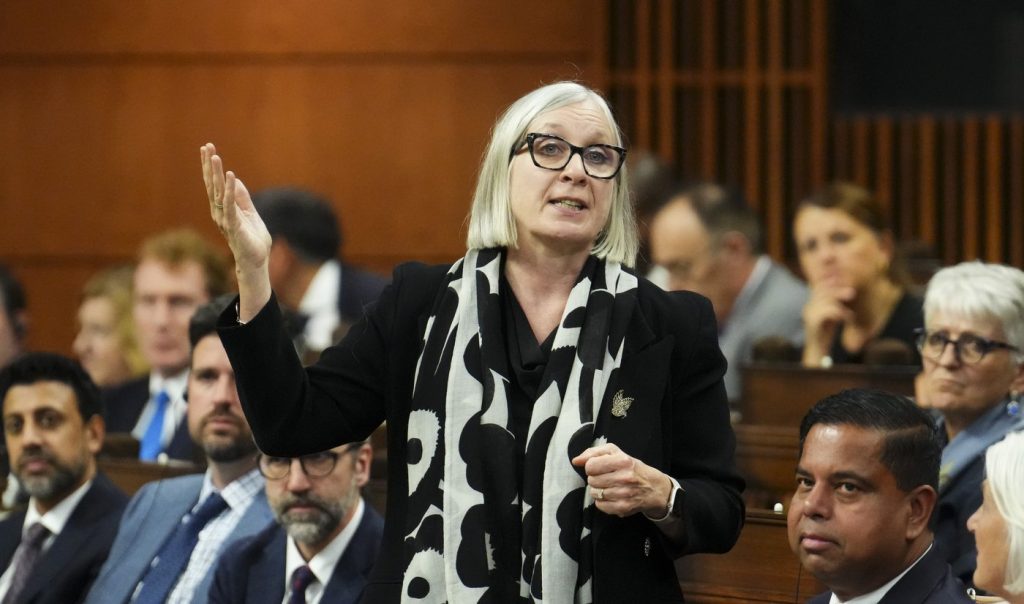OTTAWA – The Canadian government is showing no indication of plans to amend its existing legislation on medical assistance in dying (MAID), despite a recent report from a United Nations committee advocating for changes. The UN committee expressed concerns regarding the 2021 law that expanded eligibility for assisted dying to individuals whose deaths were not "reasonably foreseeable."
During a hearing of the United Nations Committee on the Rights of Persons with Disabilities last week, the federal minister responsible for disabilities, Patty Hajdu, delivered a speech commemorating the 15th anniversary of Canada’s ratification of the Convention on the Rights of Persons with Disabilities. Her address did not reference the committee’s report, which was released in late March as a federal election commenced.
The UN committee’s report describes an “extremely concerned” view of Canada’s policy on track 2 MAID, criticizing the law for creating a false dichotomy regarding choice and the treatment of individuals with disabilities. The report stated, “(T)he concept of ‘choice’ creates a false dichotomy, setting up the premise that if persons with disabilities are suffering, it is valid for (Canada) to enable their death without providing safeguards that guarantee the provision of support.”
In a response issued through a spokesperson, Hajdu acknowledged the committee’s report, affirming that MAID is a deeply personal decision. The spokesperson, Jennifer Kozelj, emphasized that the government intends to uphold and protect the rights of persons with disabilities. However, various disability rights groups in Canada have argued that the law disproportionately targets individuals with disabilities who suffer due to a lack of adequate support systems.
In September 2024, Inclusion Canada, among other organizations, initiated a Charter of Rights challenge against track 2 MAID, claiming that the law permits individuals with disabilities to access state-funded death under conditions where they are unable to obtain necessary state-funded support to ease their suffering. Inclusion Canada’s CEO, Krista Carr, called for Ottawa to implement an action plan in response to the UN report’s recommendations, insisting on the need to repeal track 2 MAID.
Garnett Genuis, the Conservative employment critic, expressed concerns about the potential impact on Canada’s international reputation and the rights of individuals living with disabilities. He noted significant international anxiety within the disability rights community regarding Canada’s euthanasia policies. Genuis advocated for additional safeguards around track 2 MAID, suggesting a model similar to New Zealand, where health professionals cannot present assisted dying as an option but can provide information upon request.
The Health Minister, Marjorie Michel, and Justice Minister, Sean Fraser, did not provide any information on whether the government is contemplating changes to the assisted dying legislation in light of the UN committee’s report. A spokesman for Minister Michel highlighted the law’s strict eligibility criteria and the presence of “multiple robust safeguards.”
Canada’s MAID law was amended in 2021 subsequently to a ruling by the Quebec Court of Appeal, which found that restricting access to individuals with foreseeable deaths constituted discrimination. Consequently, the federal government opted not to contest this ruling in the Supreme Court, instead broadening eligibility under the law.
The latest annual report on MAID indicates that out of 15,343 assisted deaths in 2023, 622 fell under track 2, with 210 self-identifying as having a disability. According to the report, less than three percent of those who qualified for assisted death in 2023 reported not receiving the necessary disability support services. The most commonly reported disabilities among MAID recipients were mobility and pain-related issues.
To qualify for MAID, individuals must be diagnosed with a grievous and irremediable medical condition. For those whose deaths are not reasonably foreseeable, there is a mandatory 90-day waiting period from the initial assessment to the procedure. Applicants are required to be informed about various support services, including counseling, mental health support, disability services, community resources, and palliative care. They must also engage in discussions with two separate medical practitioners regarding alternative means to alleviate their suffering.











